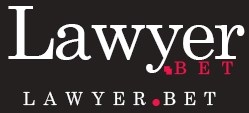Exploring Trust and Inheritance:
The ongoing debate surrounding the effectiveness of trusts versus inheritance in transferring wealth and assets to future generations is a topic of interest for many. Understanding the nuances between the two options and the potential benefits they offer is crucial for making an informed decision. This article delves into the differences between trusts and inheritance, highlights their advantages, and provides practical advice for choosing the most suitable option.
Comparing Trusts and Inheritance:
Defining Trust:
- A trust is a legal arrangement where a trustee manages assets on behalf of beneficiaries as per the trust document’s terms.
- Trusts can be either revocable or irrevocable, depending on the preferences of the grantor.
Defining Inheritance:
- Inheritance involves passing on assets and wealth to heirs through a will or intestacy laws.
- Beneficiaries of inheritance may receive assets outright without any restrictions, either as a one-time transfer or through ongoing distributions.
Advantages of Trusts Over Inheritance:
- Enhanced Asset Protection: Trusts offer a higher level of asset protection compared to inheritance, shielding assets from creditors and legal disputes to ensure long-term financial security for beneficiaries.
- Increased Privacy: Trusts provide greater privacy by bypassing probate court, preserving confidentiality, and safeguarding family wealth from external scrutiny.
- Control and Flexibility: Trusts allow grantors to dictate how and when assets are distributed, protecting beneficiaries from potential mismanagement or overspending.
- Tax Efficiency: Trusts can be structured to minimize tax liabilities for both grantors and beneficiaries, utilizing estate planning strategies to reduce estate taxes and preserve wealth for future generations.
- Creditor Protection: Trusts can offer creditor protection for beneficiaries in specific scenarios, safeguarding assets from financial risks and unforeseen events.
Guidelines for Choosing Between Trusts and Inheritance:
- Assess your family dynamics and financial objectives to determine the most suitable option.
- Seek advice from financial advisors or estate planning attorneys to evaluate the optimal choice based on your unique circumstances.
- Weigh the pros and cons of trusts and inheritance to align with your values and priorities effectively.
Concluding Thoughts:
In summary, the decision between trusts and inheritance hinges on individual preferences, family dynamics, and financial aspirations. While both options have their merits, trusts offer additional advantages such as asset protection, privacy, control, and tax efficiency. By carefully weighing the distinctions between trusts and inheritance and seeking professional counsel, individuals can make a well-informed choice that ensures the preservation and growth of family wealth for future generations. Trusts are often viewed as a secure and strategic method of asset transfer, providing peace of mind and financial stability for beneficiaries in the long term.
Understanding the intricacies of trusts and inheritance empowers individuals to make informed decisions aligned with their values and goals. Whether opting for a trust or inheritance, prioritizing asset protection, financial security, and tax efficiency is essential for a seamless wealth transfer to future generations.
Trust vs. Inheritance: Which is the Better Path to Wealth Preservation and Financial Security
When it comes to wealth preservation and financial security, many individuals are faced with the decision of whether to establish a trust or rely on inheritance as a means of securing their assets for future generations. Both options have their own set of benefits and drawbacks, and it is important to carefully consider each before making a decision.
Trust: A Powerful Wealth Preservation Tool
A trust is a legal arrangement where a trustee holds assets on behalf of beneficiaries. Trusts can be set up for various purposes, including wealth preservation, estate planning, and charitable giving. There are several types of trusts, each with its own unique features and benefits. Some of the key advantages of setting up a trust for wealth preservation include:
- Asset protection: Assets held in a trust are protected from creditors, lawsuits, and other potential threats.
- Control: The grantor of the trust can determine how and when assets are distributed to beneficiaries, allowing for greater control over the wealth preservation process.
- Privacy: Trusts are private arrangements and do not go through probate, which means that details of the trust are not made public.
- Tax benefits: Certain types of trusts offer tax advantages, such as reducing estate taxes and providing income tax deductions.
Case Study: The Johnson Family Trust
The Johnson family, who owns a successful business, decided to set up a trust as part of their wealth preservation strategy. By transferring ownership of their business to the trust, they were able to protect the assets from potential legal disputes and ensure a smooth transition of ownership to the next generation. The trust also allowed them to minimize estate taxes and maintain control over the business operations even after their passing.
Inheritance: A Traditional Approach to Wealth Transfer
Inheritance, on the other hand, involves passing assets down to beneficiaries through a will or intestacy laws. While inheritance is a common method of transferring wealth, it may not always be the most effective way to ensure financial security for future generations. Some of the drawbacks of relying solely on inheritance for wealth preservation include:
- Probate process: Inheritances often go through probate, which can be time-consuming, expensive, and make the details of the estate public.
- Lack of control: Once assets are inherited, the beneficiaries have full control over them, which may not align with the wishes of the original owner.
- No asset protection: Inherited assets are not protected from creditors and other potential threats, leaving them vulnerable to loss.
- Tax implications: Depending on the size of the estate, beneficiaries may be subject to estate taxes, which can diminish the wealth being passed down.
Practical Tips for Wealth Preservation
Whether you choose to establish a trust or rely on inheritance for wealth preservation, there are several practical tips to keep in mind:
- Consult with a financial advisor or estate planning attorney to discuss your options and determine the best approach for your specific situation.
- Regularly review and update your estate plan to ensure it reflects your current wishes and financial goals.
- Educate your beneficiaries about the importance of financial literacy and responsible wealth management to ensure the long-term preservation of assets.
- Consider discussing your wealth preservation strategy with family members to foster open communication and avoid potential conflicts in the future.
| Trust | Inheritance |
|---|---|
| Asset protection | No asset protection |
| Control over assets | Lack of control for beneficiaries |
| Privacy | Probate Process |
| Tax benefits | Tax implications for beneficiaries |
Ultimately, the decision to choose between a trust or inheritance for wealth preservation depends on your individual goals, financial situation, and family dynamics. By carefully weighing the pros and cons of each option and seeking professional advice, you can create a comprehensive wealth preservation strategy that provides financial security for future generations.






